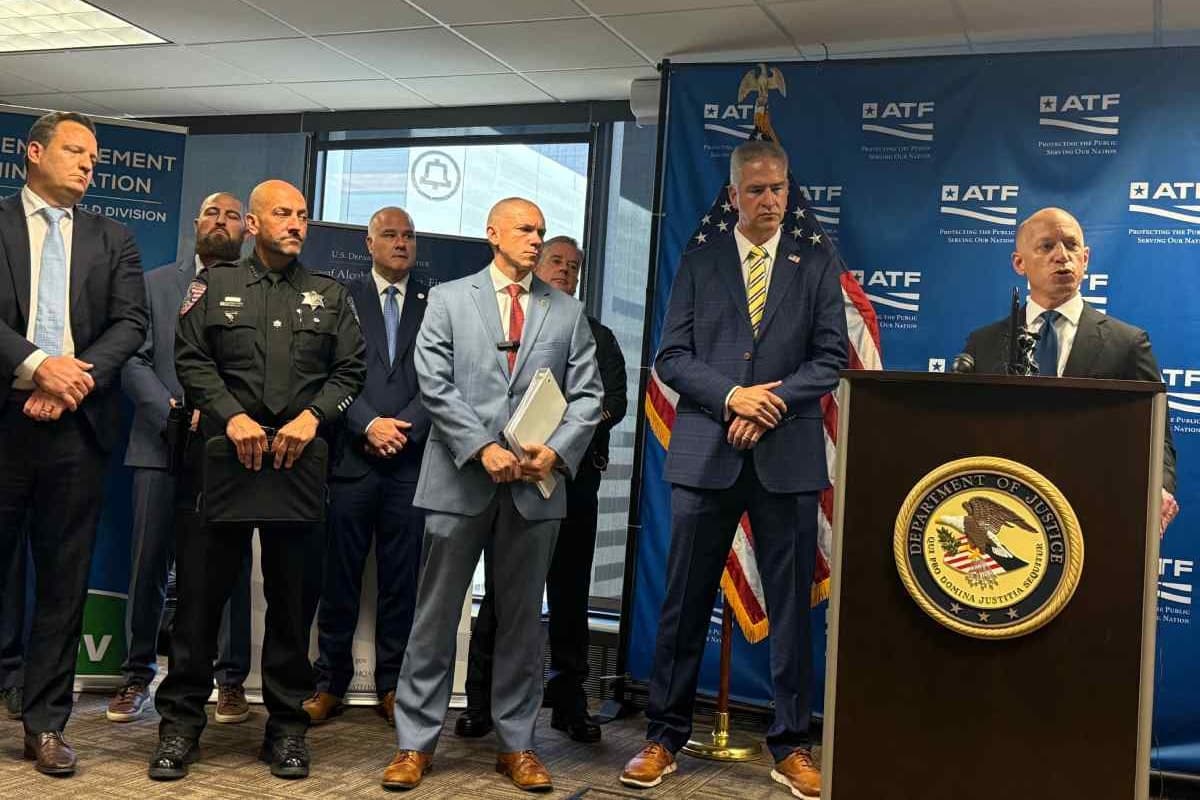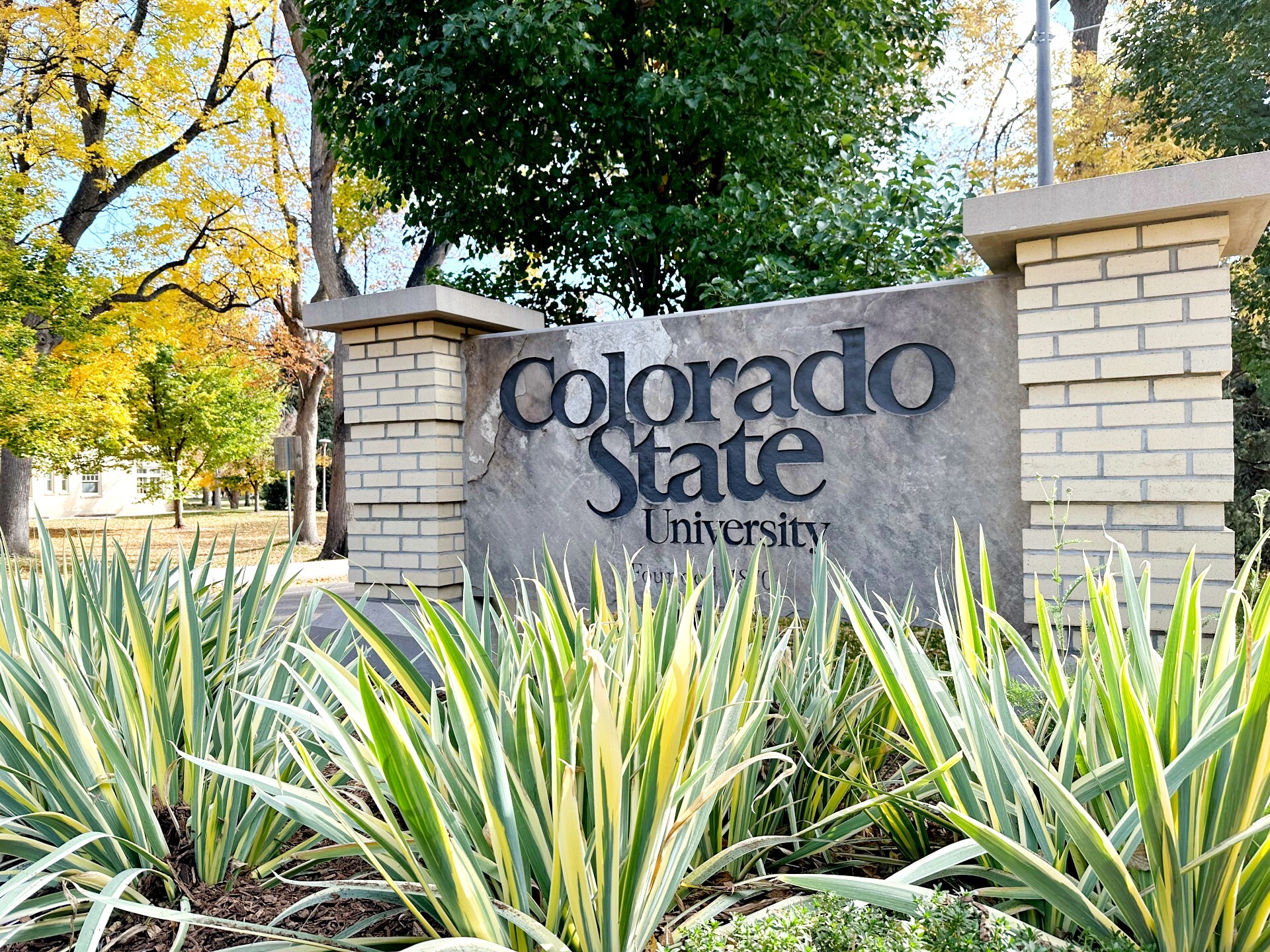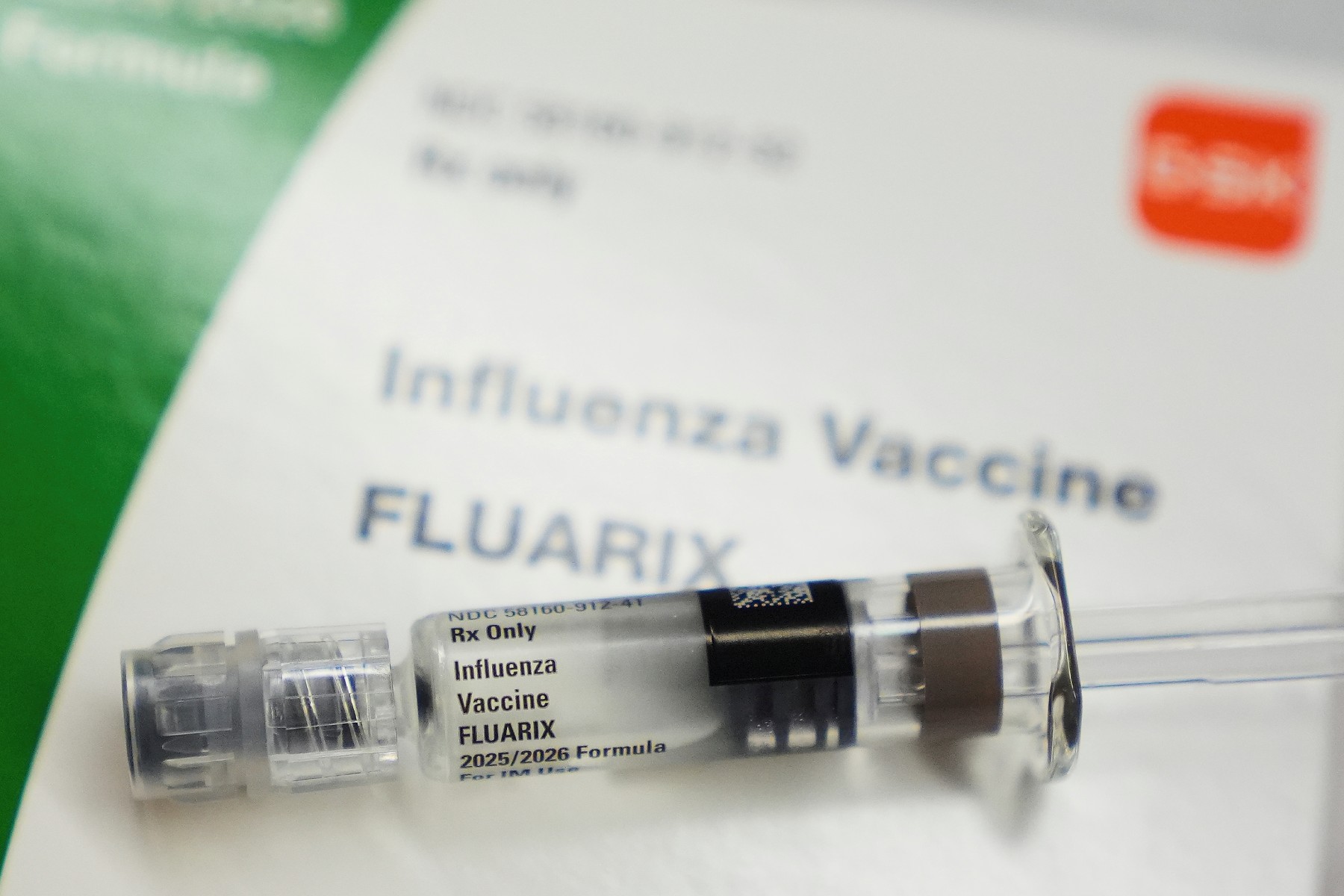
Federal agents said on Monday they helped take down one of the nation’s biggest gang threats in the Denver metro area by indicting 30 people — mostly for gun and drug crimes.
The investigation, which began last year during the administration of President Joe Biden, involved confidential informants and undercover agents from the federal Bureau of Alcohol, Tobacco, Firearms and Explosives, or ATF.
According to federal court documents, several people, most of whom lived in south metro Denver, made arrangements to purchase drugs and guns on multiple occasions. Six of the defendants are also charged with conspiracy to commit murder for hire.
Many of the details of the crimes announced Monday have previously been revealed in court documents, so Monday’s press conference was a repackaging of months of arrest warrants, indictments and superseding indictments as the number of defendants grew.
That made the event less about what the agents and federal prosecutors plan to prove in court and more about what they claim bound the group of defendants together.
Officials say eight of the 30 charged were leaders in or members of a Venezuelan criminal gang called Tren de Aragua, or TdA. They believe they captured a gang leader in Colorado and two others in Colombia. Five others were members, officials said.
Rooting out TdA has been a priority for President Donald Trump, who has based part of his deportation push on the argument that the gang is responsible for a foreign invasion of the U.S., despite low numbers of actual members in the United States.
The Venezuelan prison gang was identified during the Biden administration, but Trump has said the gang has run amok in a number of American cities, including Aurora.
Trump has used affiliation with the gang as justification to deport a number of Venezuelans to a detention center in El Salvador under the Alien Enemies Act, a practice which is under review in the U.S. 5th Circuit Court of Appeals.
The Department of Homeland Security last year identified 100 members of the gang across the United States, with another 500 people “of interest.” Federal law enforcement officials on Monday declined to say how many TdA members are in Colorado. The department has failed to provide much evidence of how they identify members of the gang, short of naming some common tattoos as proof. In one of the affidavits involved in Monday’s announcement, a nod toward a cellphone formed the basis of an allegation that the caller on the other end was a gang member.
In federal court, officials didn’t charge this as a racketeering or organized crime gang case. In the actual counts charged, there is no mention of gang membership or activity, so the agents won’t have to prove those connections in court. The vast majority of the charges are alleged gun and drug crimes, including possession of firearms and ammunition by undocumented immigrants, along with trafficking methamphetamine, cocaine and Ecstasy.
But while even the out-of-court allegation of gang affiliation was made against fewer than a third of those indicted in the investigation, Tren de Aragua was still the star of the show Monday.
“Is this community safer today from the threat of TdA than we were a year ago? I'd say it is,” said David Olesky, the Denver Special Agent In Charge at the Drug Enforcement Administration. “But the public can be assured that DEA will continue to be relentless in pursuit of members and associates of this organization with the ultimate goal of making our community safer and holding those accountable who cause it harm.”
U.S. Attorney for Colorado Peter McNeilly echoed the sentiment to a bank of television cameras. Other agents said that TdA was an especially pernicious presence in Colorado.
“I have a message specifically for TdA,” he said. “We will not let you use Colorado as your headquarters in the United States. If you bring your dangerous crimes to Colorado, we will hunt you down and we will bring you to justice and we will go anywhere in the world, in pursuit of you. We are committed to the total elimination of TdA.”
McNeilly was appointed to the post by Attorney General Pam Bondi in June, but has not to date been nominated by Trump.
The case started 10 months ago when the Arapahoe County Sheriff’s Office asked the federal government for help in responding to a spike in crime stemming from Ivy Crossing, an apartment building on South Quebec Street.
The ATF responded and launched extensive undercover operations, which they say led them to a number of the people ultimately charged.
According to the affidavits for arrest that have been recently unsealed, the federal government may face some scrutiny on entrapment, given much of the operation, which eventually got folded into a larger federal gang task force, began with confidential informants. Affidavits say those informants were paid by the federal government to seek drugs and guns, then arranged transactions before undercover agents got involved. Defense attorneys would need to prove their clients were not predisposed to commit crimes, but were somehow led into them by the confidential informants, whose own history is sure to be scrutinized in any trials.
Officials declined to say how many of the 30 people charged were Venezuelans. There are sprawling arrest affidavits and two multi-defendant indictments for those charged. The alleged ringleader, Jose Manuel Guerra-Caballero, who was amassing drugs and guns, was initially arrested earlier this year.
McNeilly confirmed all of the 30 charged would all be tried for federal crimes and, if convicted, sentenced in the United States and wouldn’t be immediately deported.
Laura Lunn, an attorney at the Rocky Mountain Immigrant Advocacy Network who has fought the federal government in court since January, said there is a trend among federal law enforcement to make “sweeping allegations” against people without any proof.
“People are innocent until proven guilty in this country,” she said. “The way the government has been operating recently, you’d think the opposite is true.”
McNeilly told reporters that “several” of the defendants agreed to kill two people for $15,000 and return their severed heads as proof of the murders for just an extra $5,000.
Aurora Police Chief Todd Chamberlain said the TdA problem in his community started after 40,000 people from Central and South America arrived in Colorado in 2022 and 2023. Many of those immigrants were sent to Colorado on buses by Texas Gov. Greg Abbott as his state’s border was swamped.
Chamberlain made no mention of Abbott.
Instead, he said, without providing evidence, that Venezuelans came to Colorado because of charity and because there was a reputation that there was a lawlessness in the immigrant communities.
“They came because it was simple. We have talked to individuals who said we came here because we've got paid money for lodging. We got a three-month stipend for support. And we were also given phones,” he said. “And the biggest part of why they were here and what they said is because we had very limited law enforcement pressure on us.”








